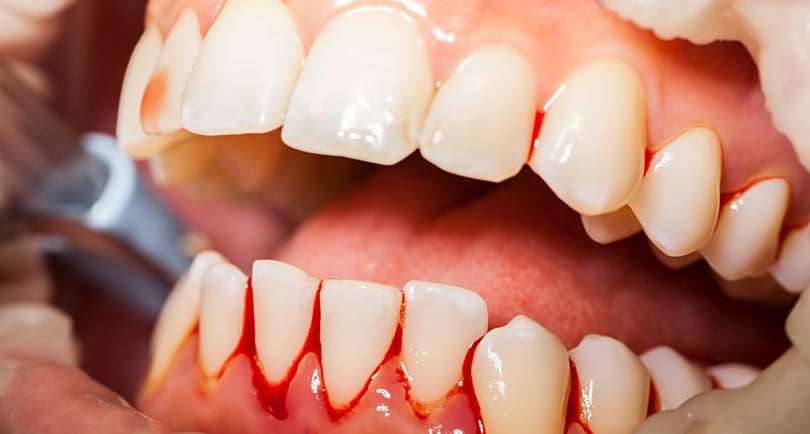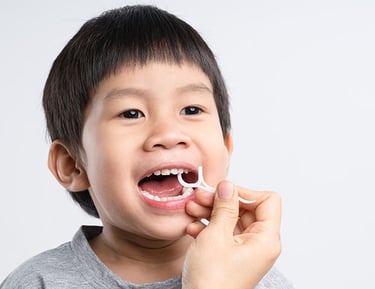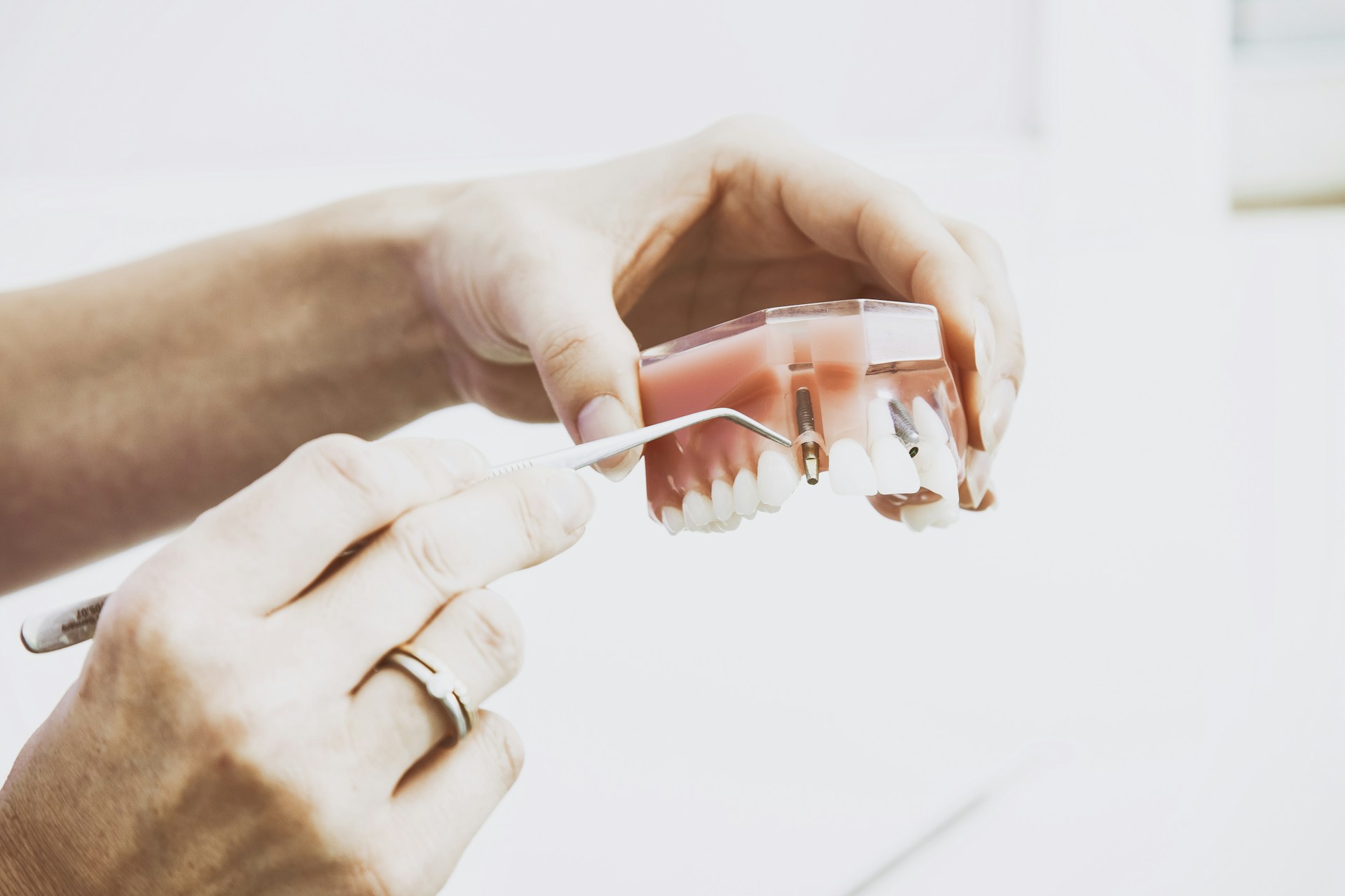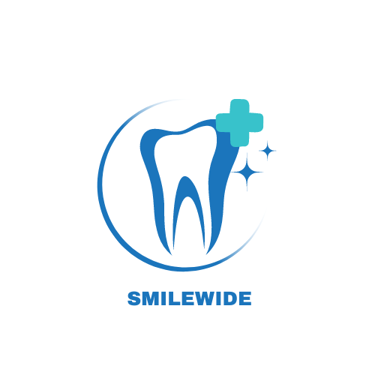SMILE- It costs nothing !!!
Understanding Bleeding Gums: Causes, Prevention, and Treatment


Bleeding gums can be a concerning oral health issue that many individuals experience at some point in their lives. While it may seem like a minor inconvenience, it is important to understand the causes, preventive measures, and treatment options to maintain optimal oral health. In this article,
we will explore the various factors that contribute to bleeding gums, discuss preventive measures to reduce the risk, and highlight effective treatment options.
Causes of Bleeding Gums
Why do my gums bleeds ?
The most common cause of bleeding gums is the plaque retention ( plaque build up in the gum line) . Plaque is the food debris and bacteria accumulated in the gums . As time goes by, this plaque hardens to become calculus which may even lead to periodontal disease.
There are several factors that can lead to bleeding gums. This may be local or systemic. Understanding these causes is essential in addressing the issue effectively. Here are some common causes:
Local factors:
Poor Oral Hygiene
Inadequate oral hygiene is one of the primary causes of bleeding gums.
When plaque and bacteria build up along the gumline, it can lead to gum inflammation, known as gingivitis. Gingivitis can cause gums to become swollen, tender, and prone to bleeding.
The contributing factors that may lead to gingivitis include 1.developmental tooth variations
2. caries
3. mal-positioned teeth
4.mouth breathing,
5. recession
6. ill fitting dentures
7. orthodontic treatment and fixed retainers .
The severity of bleeding at this stage depends upon the intensity of inflammation.
Gum Disease
If left untreated, gingivitis can progress into periodontitis, a more severe form of gum disease.
Periodontitis causes the gums to pull away from the teeth, forming pockets that can become infected. This infection can further damage the gum tissue and bone supporting the teeth, leading to bleeding gums.
Brushing Too Hard
While proper brushing is essential for oral health, brushing too vigorously or using a toothbrush with hard bristles can damage the delicate gum tissue, resulting in bleeding gums.
Laceration of the gingiva by toothbrush bristles during aggressive toothbrushing or by sharp pieces of food can cause gingival bleeding even in the absence of gingival disease.
Improper Flossing Technique
Flossing is crucial for removing plaque and food particles from between the teeth and along the gumline.
However, using improper flossing technique, such as snapping the floss against the gums, can cause irritation and bleeding.
Systemic causes:
In some systemic disorders, gingival bleeding occurs spontaneously or after irritation and is excessive and difficult to control .
Nutritional Deficiencies
A lack of essential nutrients, such as vitamin C and vitamin K, can weaken the gums, making them more susceptible to bleeding.
A range of hemorrhagic disorders which cause abnormal gingival bleeding include vascular abnormalities( vitamin c deficiency ), hypoprothrombinemia (vitamin k deficiency ), coagulation defects like hemophilia and leukemia.
Hormonal Changes
During pregnancy, hormonal changes can affect the gums, leading to increased sensitivity and a higher risk of bleeding. This condition is known as pregnancy gingivitis.
The effect of hormonal replacement therapy, oral contraceptives and the menstrual cycle are also reported to affect gingival bleeding.
Among hormonal changes, diabetes has a well characterized effect on gingivitis causing gingival inflammation.
Medications :
Several medications have also been found to have adverse effects on the gingiva.
For example, medications taken for epilepsy(anticonvulsants), blood pressure (antihypertensive calcium channel blockers ), and immunosuppressant drugs are known to cause gingival enlargement which secondarily can cause gingival bleeding.
Preventive Measures
Preventing bleeding gums involves adopting good oral hygiene practices and making certain lifestyle changes. Here are some preventive measures to consider:
Brush and Floss Regularly
Brushing your teeth at least twice a day and flossing daily are essential for maintaining healthy gums.
Use a soft-bristled toothbrush and gentle, circular motions to clean your teeth and gums without causing damage.
Related : how to choose a right toothbrush
Use a Mouthwash
Using an antiseptic mouthwash can help reduce plaque and bacteria in the mouth, promoting healthier gums.
Look for a mouthwash that is alcohol-free and specifically designed for gum health. Your dentist can prescribe a mouthwash that best suits your condition .
Related: Is mouthwash necessary ?
Maintain a Balanced Diet
A well-balanced diet rich in vitamins and minerals is essential for gum health. Include foods that are high in vitamin C, such as citrus fruits and leafy greens, as well as foods rich in vitamin K, like broccoli and spinach.
Try to avoid frequent snacking and intake of high carbohydrates.
Avoid Tobacco Products
Smoking and using other tobacco products can significantly increase the risk of gum disease and make bleeding gums worse . Quitting tobacco can improve your oral health and overall well-being.
Manage Stress
Chronic stress can weaken the immune system and make it more difficult for your body to fight off infections, including gum disease.
Incorporate stress management techniques, such as exercise, meditation, or hobbies, into your daily routine.
Regular dental visit:
Visit your dentist once every six months for dental cleaning . Follow your dentists instructions on oral care regimen .
Treatment Options
When bleeding gums occur, it is crucial to seek appropriate treatment to address the underlying cause. Here are some common treatment options:
Professional Dental Cleaning
Dental cleaning, also known as scaling and root planing, can remove plaque and tartar buildup from the teeth and below the gumline. This procedure helps to reduce inflammation and promote gum healing.
Have regular dental cleanings during orthodontic treatment .
In case of ill-fitting dentures, visit your dentist if you have any gum irritation
Antibacterial Mouthwash
If gum disease is present, your dentist may recommend you to rinse with salt water or hydrogen peroxide and water or an antibacterial mouthwash to help control the infection and reduce bleeding gums.
Improved Oral Hygiene Routine
Your dentist may recommend adjustments to your oral hygiene routine, such as using a softer toothbrush, changing your brushing technique, or incorporating additional tools like interdental brushes or water flossers.
Addressing Underlying Health Conditions
If bleeding gums are a result of an underlying health condition, such as diabetes or hormonal imbalances, it is important to work with your healthcare provider to manage and treat the condition effectively.
Vitamin supplements can be taken if you have been diagnosed with vitamin deficiency .
If medications are causing your bleeding gums, your doctor may prescribe an alternative drug.
Conclusion
Bleeding gums should never be ignored, as they can be a sign of underlying oral health issues. By understanding the causes, implementing preventive measures, and seeking appropriate treatment, you can maintain healthy gums and prevent further complications.
Remember to prioritize good oral hygiene practices and consult with your dentist regularly to ensure optimal oral health.










Contact Smiles
drdeepi15@gmail.com
Dr. Deepika B.D.S
© 2025 SmileWide Dental. All Rights Reserved.
Have doubts ..?
